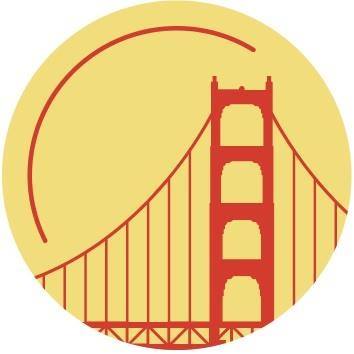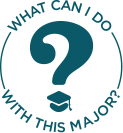Research your Major and Career Resources
Customized UC Merced Career Guides provide insight into possible career paths, industries, and opportunities for gaining experience in the field of your interest.
Chemical Engineering Career Guide
Civil Engineering Career Guide
Computer Science & Engineering Career Guide
Data Science and Analytics Career Guide
Electrical Engineering Career Guide
Environmental Engineering Career Guide
Materials Science and Engineering Career Guide
Mechanical Engineering Career Guide
What Can I Do With This Major?
What Can I Do With This Major? is a website featuring 106 major profiles with information on common career paths, types of employers that hire in the field, and strategies to maximize opportunities. Links to professional associations, occupational outlook information, and job search resources are included.
Informational Interviews
Informational Interviewing is one way to learn about an occupation, industry or company. This is your opportunity to talk with experienced professionals so you can gather relevant information about their educational and career journeys. Learn more by reading the Informational Interviewing Guide . One way to begin is by connecting with UC Merced Alumni on LinkedIn.
What are Career Assessments?
The Student Career Center maintains a variety of tools to help you identify personal attributes that give you direction and purpose in your career aspirations. View our variety of Career Assessments below!
The O*Net Interest Profiler can help you learn about your interests are and how they relate to the world of work. You can use the results to help you decide what kinds of careers you might want to explore. Click on the O*Net Profiler Link and Complete the Assessment (60 questions). Print or save your score report and use it to identify possible career paths.
SkillScan
The SkillScan Drive assessment is a fast, interactive tool for identifying your transferable skills - critical knowledge for discovering your core strengths and preferences to support your career development. You can access the SkillsScan Assessment via the Handshake Resources Tab.
Evaluating Your Career Values
Understanding your personal career values will help guide you toward a fulfilling and satisfying career path that encompasses what matters most to you in a work environment. Take a moment to reflect on you own Career Values using the Career Values Assessment Tool as a guide for your reflection.
Other Career Exploration Resources

California Career Zone
California Career Zone is a new way to explore exciting jobs and occupations that California has to offer and to learn about what career path interests you. Students can choose among three self-assessment exercises, view occupations by industry sectors and assessment results, view videos of occupations of interest, and playing a Reality Check game comparing salary information with lifestyle.

O*Net Online
The O*NET program is the nation's primary source of occupational information. The database also provides the basis for our Career Exploration Tools, a set of valuable assessment instruments for workers and students looking to find or change careers.

Career OneStop
This web site is sponsored by the U.S. Department of Labor that offers career resources and workforce information, including occupation and industry information, salary data, career videos, education resources, job search strategies, and resume and interview guidelines.
California Labor Market Information
The Employment Development Department provides labor market information at this site, including occupational information, supply and demand information, local profiles of labor mark et information by California City, and wage data.
Occupational Outlook Handbook
The Occupational Outlook Handbook is a nationally recognized source of career information, designed to provide valuable assistance to individuals making decisions about their future work lives. The Handbook is revised every two years.







